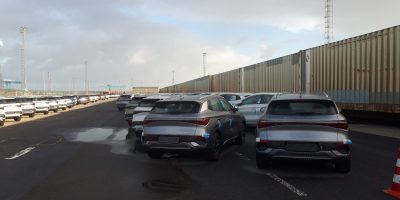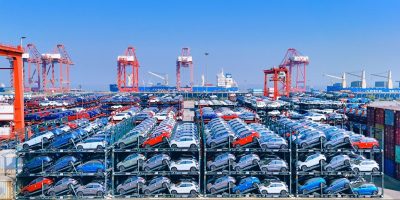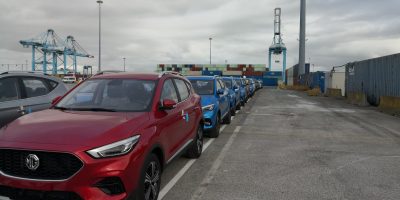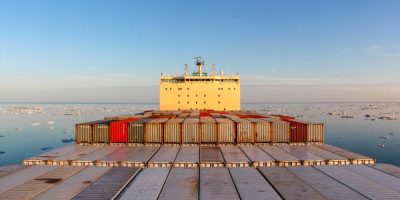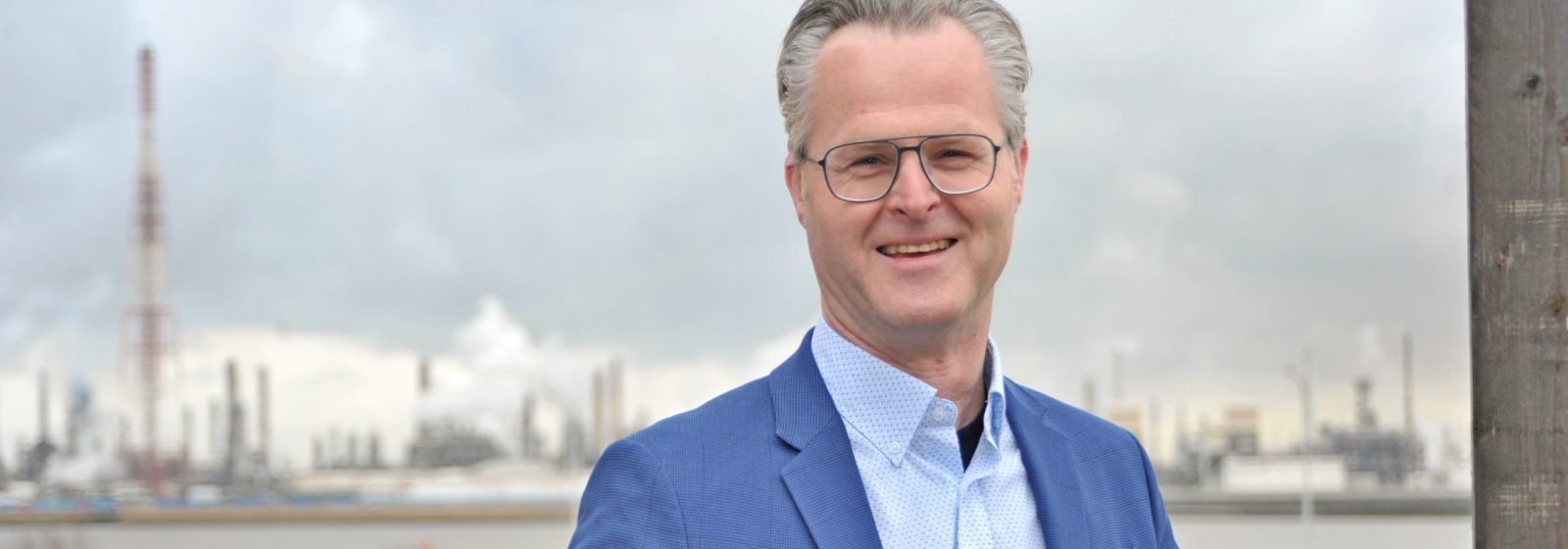
In our anniversary magazine ’10 years of Flows’, maritime and port economist Theo Notteboom highlights trade between the West and China. These flows of goods form the backbone of container traffic in the world today. How did they originate, and how will they evolve as geopolitical tensions mount?
The role China has played in the development of international freight transport cannot be overstated. Today, the geopolitical power blocs are increasingly opposing each other; a tense situation that also puts pressure on the entire supply chain as organised today. “I hold my heart if China and Europe were to become even more geopolitically disconnected,” says maritime and port economist Theo Notteboom.
Can you briefly frame how China’s role has evolved in the world of freight transport?
Theo Notteboom (TN): “Until the end of 1980, China was a very closed economy. The Chinese government then decided to open up the economy, but very gradually. Shenzhen in the south became the first free economic zone. That was the start of spectacular economic growth. In 2001, China joined the World Trade Organisation (WTO), although that membership has always remained controversial because China gave its own interpretation to some rules. But at that point, the boom started all the way.”
“With that strong economic growth, China became very focused on exports. That is also a process that took place in the late 1990s and early 00s. That resulted in a huge boom in container traffic between 2000 and 2007-2008, also immediately the period when the Deurganckdok on the Antwerp left bank was realised.”
Consequently, a lot of production has moved to China, today labelling it the ‘factory of the world’.
TN: “That trend emerged in the 1990s. China pursued a very aggressive policy of attracting so-called ‘foreign direct investments’, with all kinds of favourable regimes such as the provision of land or favourable taxes. Even shipbuilding has thus largely moved to China. From nowhere, China has become a superpower in shipbuilding. But not only has production moved to China from the West. China itself has also invested heavily in production capacity at home.”
“Importantly in that respect, China has been very keen on merging its ports into so-called ‘port groups’ to increase the clout of its own companies. By the way, China has also done this in other sectors, such as with COSCO SHIPPING, which merged with China Shipping (now COSCO) in 2016. China today has several very large players with the clout to realise business anywhere in the world, such as COSCO investing in ports.”
Today, that model is nevertheless being questioned and Europe is looking at whether production can be recalled.
TN: “Back then, companies didn’t question that and they naturally took advantage of it themselves. Free trade thinking removed a lot of barriers. For instance, machines were needed for that production in China and they largely came from Germany or Japan, countries that were getting a huge boost in that area. This was also where the idea prevailed that the West had both the technology and the smart people, and that China had to rely mainly on cheap manpower. This no longer holds true today: China still has the manpower, but also the brains and innovation. An example to illustrate this is their high-speed trains.”
How important are exports to China today?
TN: “Today, China’s own prosperity is at the point where it can focus more on its internal economy; domestic consumption. A large middle class has emerged in China with money, making the Chinese less dependent on exports. Those exports were always China’s Achilles heel because the country needed them to achieve growth.”
“Today, domestic demand has become even more important than exports for China. That gives them more freedom. The West can still hurt China, but much less, especially when you look at what China is doing in Africa and South America. At the same time, that makes it even more complex for the West to make a fist against it. The trade war started under former US President Trump is simply being continued by Biden. There is also a strong feeling in Europe that we need to take back crucial industries, such as chip production.”
“Only, I hold my breath if China and Europe will become more disconnected, because after all, that trade is the big backbone of container trade in the world. Today you can already see that China is geopolitically shifting the cards, ploughing back more on itself and non-Western markets. I see very few Westerners in China today, even at universities. This is also partly to do with the policies the EU and the US are pursuing, where they very explicitly want China’s strategic independence and are scrutinising all investments from China, such as HHLA’s Tollerort Terminal, for example.”
What could be the possible consequences?
TN: “We can talk a lot about nearshoring and some production might come back, but we remain heavily dependent on Asia and on China in particular. And for some sectors, bringing back production is almost impossible. Today, there is also a very strong network of container traffic between Europe and the Far East, with the biggest ships calling at several major hubs, which are then connected. If traffic on those major axes were to decline, the whole of that system would have to be redesigned. That won’t be overnight, but we may be faced with a fundamentally different model in 20 years’ time.”
“Today you can see that geopolitically Europe is drawing closer to India. That country is geopolitically interesting because of its democracy, manpower and low labour costs. But India also has problems in realising large projects, something China has been able to solve because the government is in tight control. Crucially, though, India is still experiencing population growth, whereas China is no longer.”
Europe is also no longer experiencing population growth.
TN: “Europe indeed has the same problem, but is partly solving the shortage of people with migration. The migration crisis we are experiencing now and Angela Merkel’s famous statement ‘wir schaffen das’ should also be seen against that background. Europe needs people because otherwise labour shortages will jeopardise economic growth. The other side of the coin is that migration does bring challenges, such as in the field of education. That is really under pressure today.”
“In China, large-scale migration is not an issue for now, but the country will still have to do something. This is because it faces the challenge of declining population numbers, an ageing population and too few young people. China is looking to other Asian countries for this today. However, it is still the case that many high potentials still go from China to the West, especially towards the US and Canada.”
How do you see relations between the power blocs evolving further?
TN: “In my opinion, from a strategic point of view, it is not wise to call China by name and explicitly say that you are developing a policy to sideline China, politically and economically. If you treat China like that, it feels attacked. There is tremendous pride in China in what they have achieved. They see themselves as the hardworking people, who have fulfilled the West’s huge appetite for consumer goods. China feels a lack of gratitude in that regard.”
“The West is not always consistent in that either. We want certain things here when it suits us, until we no longer need them and then we start denouncing it. An example is the unethical extraction of crucial raw materials for the production of batteries for electric cars. Actually, Europe is the co-cause of mistreatment, simply because of the huge demand for growth.”
“Today there is also a lot of criticism of China’s political policies as a dictatorship, but the Chinese man in the street does not feel that way. Of course, there is a system to keep everyone in line, but every Chinese is enormously proud of the homeland and what they have been able to achieve. Of course, as a government, it is easy to defend those policies when things are going well. The Chinese government realises only too well that it must remain a good-news show, which must also come across as credible to the man and woman in the street.”
What if things stop going well in China?
TN: “Sooner or later, China will then have to open up more to foreign countries anyway, and it actually has to do that right from its studies. Today, Chinese universities are already strongly committed to attracting students from the non-Western world. It would be wise of China to open the door to the West again. That is not the case now and there are few expatriates in China and few students from the West. It would be dangerous to become disconnected and alienated.”
How do you view China’s relationship with Russia?
TN: “With a fancy word it is pragmatism, with an ugly word it is opportunism. The close relationship with Russia is also motivated by China’s need for energy to keep its entire production apparatus running. Those needs are huge, so if an opportunity arises to meet them, they respond. By the way, today you also see huge sales of Chinese e-cars in Russia, because the West has introduced sanctions on car trade with Russia.”
“In dossiers like that, China does know how to bend things to its will very skilfully. Another great example is a possible alternative in Nicaragua to the Panama Canal. Officially, China was never involved in that story, but China did support Nicaragua behind the scenes, to put pressure on Panama. Indeed, Panama was one of the countries that officially recognised Taiwan. At some point, a senior Chinese official travelled to Panama, after which Panama revised its official position and confirmed that Taiwan was indeed a province of China. Afterwards, nothing was ever heard of a possible alternative in Nicaragua to the Panama Canal.”
Will China ever attack Taiwan?
TN: “China is not a belligerent nation. They will keep the pressure very high on Taiwan and push the edge of what is acceptable, but I don’t think it will come to an attack. However, they do need to stop stigmatising China too much, because that too could contribute to an escalation.”

